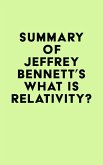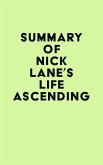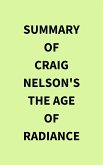#1 The theory that objects of different weights fall at different speeds is based on the idea that, in the absence of other influences, every object moves towards its natural place: lower down for earth, a little higher for water, higher again for air, and higher still for fire.
#2 The idea that it is impossible to compare the thought produced by cultural universes so distant from each other as those of Aristotle and modern physics is what causes us to overlook Aristotle's scientific brilliance.
#3 When an object falls, it goes through an initial stage during which it accelerates, then stabilizes at a constant speed which is greater for heavier bodies. This second stage is well described by Aristotle. The first stage, on the other hand, is difficult to observe and as a result had escaped Aristotle's notice.
#4 There is a great deal of distance between Athens in the fourth century BC and seventeenth-century Florence. But there is no radical rupture, and no misunderstanding. It is because Galileo knows how to enter into dialogue with Aristotle that he finds the narrow opening through which it can be corrected and improved.
Dieser Download kann aus rechtlichen Gründen nur mit Rechnungsadresse in A, B, BG, CY, CZ, D, DK, EW, E, FIN, F, GR, HR, H, IRL, I, LT, L, LR, M, NL, PL, P, R, S, SLO, SK ausgeliefert werden.









